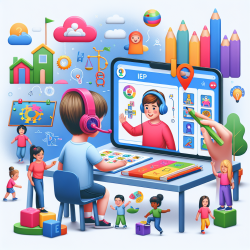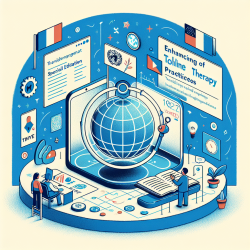As speech-language pathologists (SLPs), we are continually seeking evidence-based practices to enhance our clinical interventions. The recent study titled "Global TALES feasibility study: Personal narratives in 10-year-old children around the world" offers valuable insights into eliciting personal narratives from children, which can significantly inform our practice.
Personal narratives are crucial for children's social, emotional, and academic development. They make up more than half of children's conversations and are vital for building friendships, classroom participation, and overall well-being. The Global TALES study aimed to develop a protocol to elicit personal narratives from children across various cultures and languages.
Key Findings from the Global TALES Study
- The protocol was effective in eliciting personal narratives from children in 10 different countries, speaking 8 different languages.
- Children shared common themes in their narratives, such as family events, personal achievements, and peer relationships, indicating the universal nature of these experiences.
- Some cultural differences were noted, particularly in how children from different backgrounds responded to the prompts.
Implementing the Global TALES Protocol in Practice
Here are some actionable steps for practitioners based on the study's outcomes:
- Use diverse prompts: Incorporate prompts that tap into various emotions and experiences, such as feeling excited, worried, or proud.
- Adapt for cultural relevance: Ensure that the prompts are culturally appropriate and understandable for the children you work with.
- Encourage detailed responses: Use follow-up questions to help children elaborate on their stories, ensuring richer narrative samples.
Encouraging Further Research
The study's authors invite clinical researchers worldwide to join in further research to understand the development of personal narratives across different languages and cultures. This collaborative approach will help establish local benchmarks and improve our ability to assess and support children's language development effectively.
To read the original research paper, please follow this link: Global TALES feasibility study: Personal narratives in 10-year-old children around the world.










